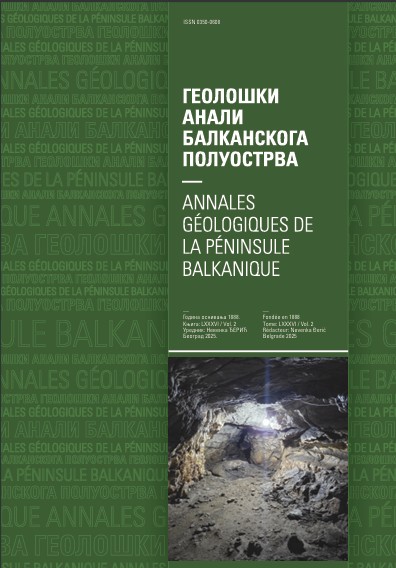Distribution of chromium, nickel, copper and zinc in the Al Zintan area, northwestern Libya
Abstract
Global population is growing rapidly. As a result, increasingly large areas are being settled and farmed. This devastates soils and causes pollution by heavy metals and other components. Heavy metals in the environment originate from both natural and anthropogenic sources. Natural sources generally include rock weathering and the propagation of heavy metals, such as Cr and Ni, from ultrabasic rocks. These are natural processes that generally do not threaten human health. Anthropogenic sources include industry and inappropriate disposal of waste in the environment. In such cases concentrations of heavy metals can be harmful to people and other living beings. Al Zintan is a city located in northwestern Libya, on a plateau mainly built up of Cretaceous sediments. Since the 1980’s, nomadic population has rapidly been settling this area. As a result, a former part of the desert was transformed and is used for farming. Soil sampling at Al Zintan was was conducted in 2017, across a 2×2 km grid. A total of 143 samples were collected from depths of about 30 cm. The samples weighed 2 to 2.5 kg and generally comprised sand with a clay component. A Niton Xl3t goldd+ instrument was used for chemical analyses, based on which GIS heavy-metal distribution maps were generated. The distribution of Cr, Ni, Cu and Zn is discussed on the paper.
Copyright (c) 2018 Geološki anali Balkanskoga poluostrva

This work is licensed under a Creative Commons Attribution 4.0 International License.










